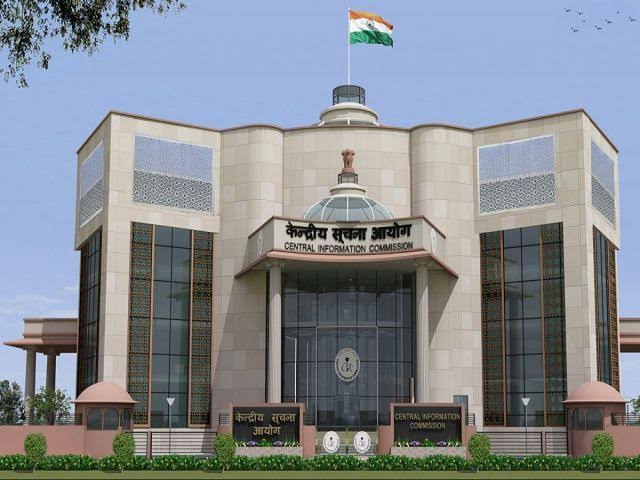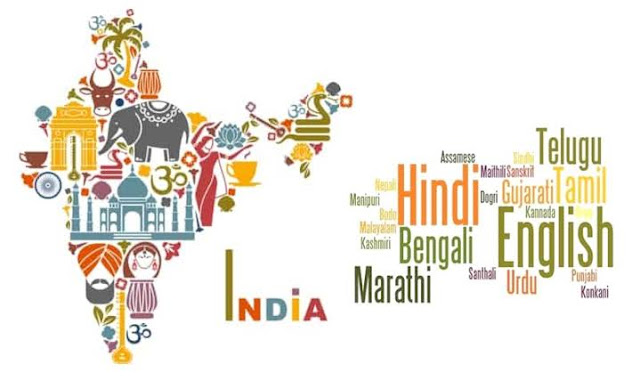Non Constitutional Bodies
NON CONSTITUTIONAL BODIES
*Established in 2009 by NIA act 2008
*They are not present in Constitution but enacted by an act of Parliment
*They are Statutory Bodies
LOKPAL
*Established under 2013 Lokpal Act
*Administrative Reform Commission Recommended
*Lokpal First coined by L.M.Singhvi
*1 Chairperson and not exceeding 8 members (50%from Judicial and 50% from SC,ST,OBC, Minorities and Women's)
*Search Commitee prepare panel of list, Selection Commitee (PM+Speaker,Leader of Opposition+Chief Justice of India)will recommend names and President will appoint those members
*Salaries and allowance for Chairperson is same as to Chief Justice of India and Members is same as to judge of Supreme Court
*Jurisdiction-Wide range of public servants,PM,Ministers,MPs and Group A,B,C,D employees of Central Government
*Exception-In PM regarding International Relation,External and Internal security,Public order,Atomic Energy,Space.Complaigns against PM not to be probed unless 2/3 members approved it
*Enquiry-Preliminary inquiry should be complete within 90 days,Then it goes for departmental proceeding or any agency(like CBI)enquiry then case will disposed
*No Suo moto power
LOKAYUTKA
*Similar to Lokpal but it is in state
*5 years or 65 years of age
*Chairman and members appointed by Governor of State
*In some states it is called as Upalokayutka and in some states instead of Lokayutka equivalent officers are established
*Facts Regarding Lokayutka-Lokayutka established first at Maharasthra on 1971,Lokayutka bill first passed at Odisha 1970 but came into force on 1983,Strong Lokayutka-Karnataka and Weak Lokayutka-Maharasthra
NATIONAL HUMAN RIGHTS COMMISSION (NHRC)
*Statutory body under protection of Human Rights act 1993
*Established on 12/10/1993
*To protect Human Rights
*1+5 (Chairperson is retired judge of Supreme Court or retired Chief Justice of India (Before 2019 only retired Chief Justice of India is eligible for Chairman of NHRC))
*Appointed by President of India on the recommendation of Commitee consists of PM,Speaker of Loksabha,Deputy Chairman of Rajyasabha,Leaders of opposition of both Houses and Union Home minister
*Term 3 years or 70 years of age
*Suo Moto power
*Power of Civil Court
*Enquires on the subject of Central list and Concurrent list and state list
*He visits prison all over India
STATE HUMAN RIGHTS COMMISSION(SHRC)
*By Protection of Human Rights act 1993 for state level
*Inquire violation of human rights related to subjects covered in State list and Concurrent list
*Governor appoints Chairman and members on the Recommendation of Commitee consists of CM,speaker of Legislative Assembly,Chairman of Legislative Councils,Leader of Opposition
* Chairman and member removed by President of India
*Suo moto power
*Power of civil court
*He visit prison all over state
CENTRAL INFORMATION COMMISSION
*Established by Rights to Information act 2005
*1 Chief Information Commissioner and not more than 10 Information Commissioner
*Appointed by President of India on Recommendations of Commitee consists of PM,Leader of Opposition of Loksabha
*65 years of age or Term prescribed by Government of India,He can also give resignation to president
*Not eligible for reappointment
*Receive and Enquiry complaint regarding information request under RTI act 2005
*Suo motto power
*Power of civil court
*He is removed by president on grounds of bankruptcy,unsound mind,infirmity of body or mind,sentence to imprisonment on crime and engaged in paid employment and also for proved Misbehavior
STATE INFORMATION COMMISSION
*Established under RTI act 2005
*Jurisdiction over concerned State
*Term-5 years or 65 years of age
*Removed by Governor of Concerned state on ground of bankruptcy,unsound mind,infirmity of body or mind,sentence to imprisonment on crime and engaged in paid employment and also for proved Misbehavior
*Function is similar to Central Information Commissioner but to states
CENTRAL VIGILANCE COMMISSION
*Established by Recommendations of Santhanam Commitee,in 1964(By Resolution)
*CVC Act 2003(Statutory Status)
*To receive complaints or disclosure on any allegations of corruption or misuse of office from whistleblower
*1Chief Vigilance Commissioner and not more than 2 Vigilance Commissioner and they are appointed by President on Recommendations of Commitee consists of PM, Leader of Opposition and minister of home affairs
*Not eligible for further employment
*Salary and allowance similar to UPSC
*They are removed by President of India on Recommendations of Supreme Court after inquiry on grounds of proven Incapacity or Misbehavior
*It is not Investigation agencies,CVC investigates through CBI or Chief Vigilance Officer Of Concerned department
CENTRAL BUREAU OF INVESTIGATION
*Recommended by Santhanam Commitee
*By Resolution of Ministry of Home Affairs in 1963
*Not Statutory body it derives power from Delhi Special Police Establishment act 1946
*Headed by Director in rank of DGP IPS and assisted by Special Director in rank of ADGP IPS
*Tenure -2 Years by CVC act 2003
*To prevent corruption and maintain integrity in administration and it works under supervision of CVC
*Suo Moto only to Union Territories
*In other States Enquiry is by General Consent or Special Consent
*General Consent-CBI is not required to make fresh permission to entry into that state in connection with investigation for every case,Special Consent-CBI needs to seek case wise consent to inquire case
*Divisions in CBI-Anti Corruption Division, Special Crimes Devision, Economic Offences Division,Technical Advisory Unit,Directorate of Prosecution,Policy Division, Administrative Division,Coordination Division,Forensic Laboratory,Training division
*CBI Training academy is located at Gaziabad in Uttar Pradesh it provide training to CBI constables,SIs,DSPs
*First CBI is under Ministry of Home Affairs but now CBI is under Ministry of Personnel and Public Grievances
NATIONAL DISASTER MANAGEMENT AUTHORITY
*Established by Disaster Management Act 2005 *NDMA,SDMA,DDMA
*NDMA-PM is Chairman of ex officio
*Apex body for Disaster Management to Frame policies,plans and guidelines
*SDMA-CM of state is ex officio Chairman
*DDMA-Collector of a district is ex officio Chairman
NATIONAL INVESTIGATION AGENCY
*To investigate Offences which affect Sovereignty, Security and Integrity of India
*Counter-Terrorism agency
*State Government can request NIA to enquire case
*Government of India also order NIA to enquire case anywhere in India
*Special NIA courts-For Trial of cases registered in police station under NIA act
*Recent amendment-Officer above Inspector rank can enquire case(Previously Officer above Assistant Commissioner/Deputy Superintendent of Police only enquire cases),Officer does not need to obtain permission from DGP of state but need to obtain permission from DGP of NIA(Previously officer need to obtain permission from DGP of NIA and DGP of states)
NITI AAYOG
*Resolution of union Cabinet on Jan 1 2015
*Think Tank of Government
*Bottom-Up approach
*Fosters Cooperative federalism
*Chairman-PM+Vice Chairman(Equal to rank of Cabinet Minister) appointed by PM+CEO(Equal to Secretary rank)+Members(CM of states,Lieutenant Governor or administrator of UT without state Legislature,4 Union Ministers,2 Part time members who are academics from leading universities or research organization)
*Governing council and regional council
*Design policy and programme framework,Monitoring and evaluation, Knowledge and innovation hub












Comments
Post a Comment